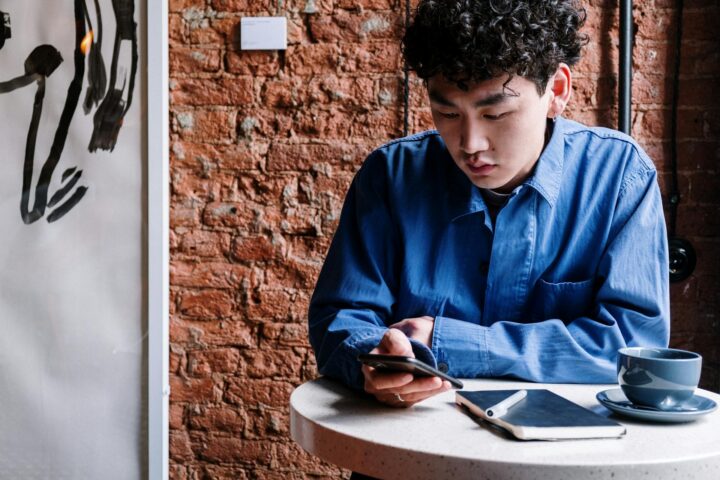“We don’t talk. And that’s why it works.”
In an effort to address Japan’s declining birthrate and rising rates of social exhaustion, a coalition of municipalities has developed QuietlyTogether, a new dating app designed specifically for individuals who mutually avoid group chats, despise notifications, and politely ghost their closest friends.
The app, which launched in beta this month, was funded in part by the Ministry of Compatibility and Light Ghosting. Over 67,000 downloads have been reported within its first two weeks, with demand highest among remote workers, introverts, and those who regularly enable airplane mode “for spiritual reasons.”
“Some people connect over shared passions. Our users connect over a shared desire not to connect,” explained Chief Algorithmic Counselor Noriko Maebara during a press conference, which was conducted via fax upon request.
A Love Language Built on Muted Threads
QuietlyTogether uses AI to analyze behavior patterns on LINE, Japan’s dominant messaging app. It considers how quickly users mute new group chats, whether they react with emojis instead of typing responses, and how often they gracefully slip out of conversations citing overstimulation or vague errands. Even the act of ghosting a birthday group thread before the cake emoji appears is scored as “emotionally discerning.”
Once a match is made, the app sends a solitary, non-urgent notification reading: “You’ve been matched. Feel free to do nothing about it.” Typing indicators are hidden, read receipts are disabled, and the swipe feature is replaced by a single meditative “Politely Decline” button. Users are gently encouraged to let matches remain unread for as long as they need to emotionally process the concept of interaction.
Beta Users Praise the Lack of Interaction
Early adopters have embraced the app’s hands-off ethos.
“I met my match after we both ignored the onboarding survey for two weeks,” said Makoto, 33. “When we finally agreed to meet, we sat at opposite corners of a café, shared a silent nod, then spent forty-five minutes reading different newspapers in total peace. We’ve since continued our relationship through a shared Google Calendar we never open.”
Airi, 29, praised the platform’s “spiritual neutrality,” explaining, “Unlike other apps, I don’t feel pressured to say something clever or respond within eight seconds. My match and I once spent an hour together browsing the same bookstore aisle, neither of us speaking. I think we both felt something. Maybe it was the collective disinterest.”
Others report that one of the most appealing features is the Subtle Fade-Out Protocol™, which automatically converts messages into grayscale if either user becomes emotionally unavailable, reducing tension and encouraging healthy vanishing.
Updates Include Personal Space and Plan Cancellation Tools
According to internal leaks (accidentally emailed to themselves and then never followed up on), future updates will include compatibility scores based on mutual likelihood of flaking, recommended restaurants where patrons are seated alone by default, and a “Snooze Relationship” toggle for those navigating low-bandwidth weeks.
One feature currently being piloted called Silent Proximity Mode™ allows matched users to exist peacefully within a 500-meter radius without exchanging words or verifying each other’s presence. Officials say the feature has tested well among museum lurkers and park bench philosophers.
A Philosophy of Togetherness Through Distance
Government officials are calling the project a quiet success, even if public testimonials remain mostly whispered. They believe the app may redefine the future of romantic intimacy in a world oversaturated with connectivity.
“We believe true companionship begins with mutual agreement to cancel plans,” Maebara stated. “If you really care, sometimes the best thing you can do is nothing.”
Author’s Note
I downloaded QuietlyTogether to my phone after being added to my fourth group chat about planning a group chat. It got me thinking: What if connection isn’t about constant engagement, but about mutually agreed, dignified avoidance?
This piece is part of TTT’s ongoing exploration of modern systems and how they unravel when faced with basic human discomfort. If you’ve ever ghosted an app notification, RSVP’d “maybe” on purpose, or matched with someone just to quietly pretend it didn’t happen, this one’s for you.
Silence is golden. Especially when it’s algorithm-approved.




